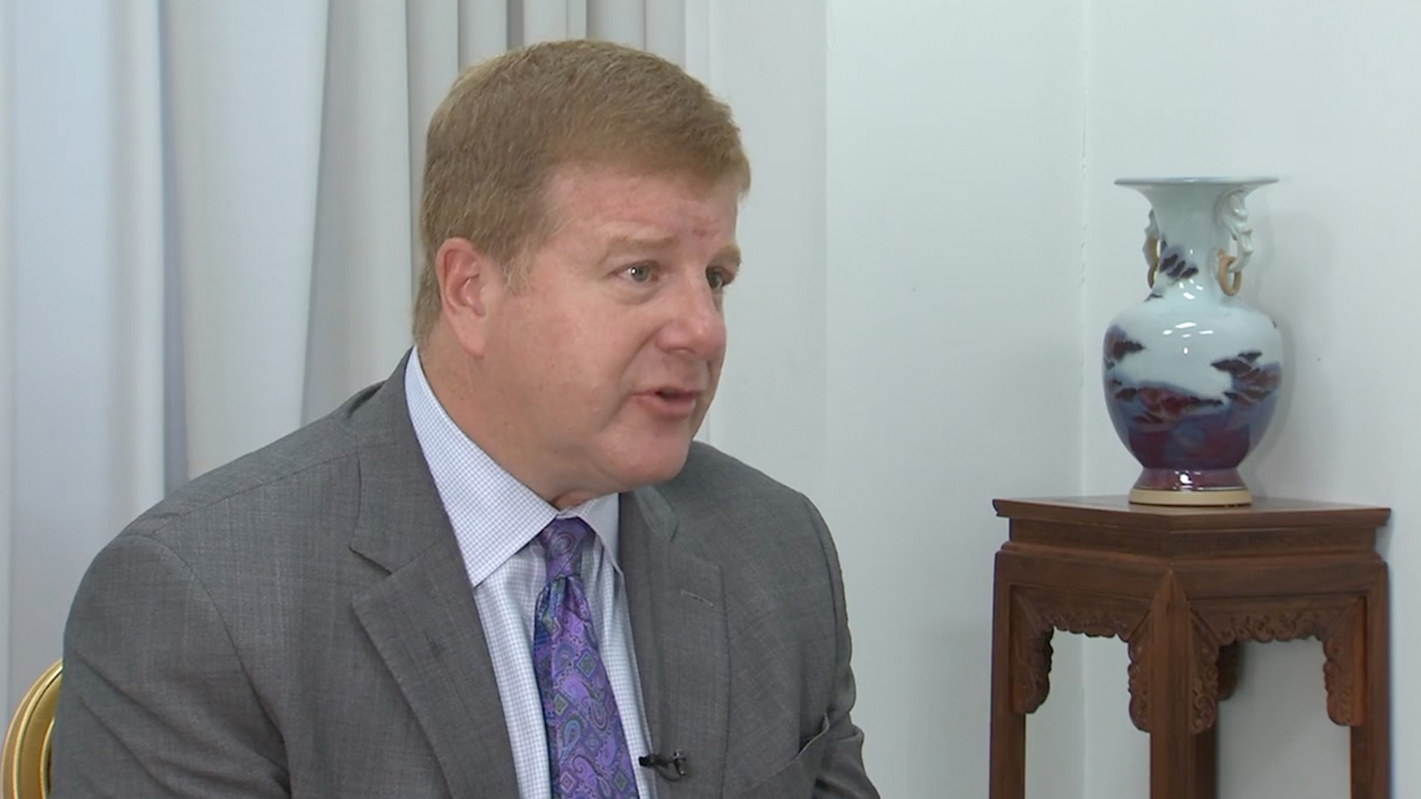

Round 13 of China-U.S. trade talks is set for October. On the sidelines of the recent China-U.S. CEO dialogue in Beijing, Myron Brilliant, the executive vice president and head of international affairs for the U.S. Chamber of Commerce, called for a trade truce between U.S. and China.
Myron Brilliant has been engaged in China-U.S. trade issues, and worked for the U.S. Chamber of Commerce for 25 years. Asked about the trade disputes between China and the U.S., he expressed his assessment on the impacts on Chinese and American businesses. He also analyzed the two countries' trade negotiations and future trends for bilateral ties.
Asked the key issue the two countries need to work on for the fresh round of trade talks in early October, Brilliant pointed out the importance of confidence building.
"I think both sides have to take confidence building measures to encourage the trade talks get really back on track to get serious. They've been derailed. There's been an impasse since early May, when the talks broke down on both sides. There can be culpability here, but the key is not to raise tensions, not to escalate things."
"What we need is a truce, say trade truce between the two sides…with the long term goal of having a high standard, comprehensive trade agreement," he said.
Myron Brilliant reckoned that the two business communities understand there are no winners. "When you have a trade war, there are only losers. China will lose, the United States will lose, and the global economy will lose. So we want to encourage our governments to work closely."
Since the trade disputes started last March, there has been rhetoric saying that this is just a start of America's cold war targeting China. Besides trade, the U.S. is going to suppress China from other aspects, such as finance and academia. But Brilliant pointed out this kind of so called "cold war" is not possible and this kind of rhetoric is problematic.
"That is not the prevailing view in the United States and certainly not the prevailing view in my view here in China. That is a negative and counter-productive view. Our two economies are just too important. We need to work together," he explained
He added, "Fundamentally, it's not just about the economic ties between our two countries, it's about the geo-political risk if the United States and China were to decouple. I don't think that's even possible, but the extent to which people are talking about that, either in Washington or Beijing, that's problematic. So we need to work hard in improving and stabilizing this relationship, bringing more certainty in the relationship."

Copyright © 2018 CGTN. Beijing ICP prepared NO.16065310-3
Copyright © 2018 CGTN. Beijing ICP prepared NO.16065310-3